Natural Sciences
72nd Graduation: Doctoral Citations – CoNAS
Published
4 years agoon
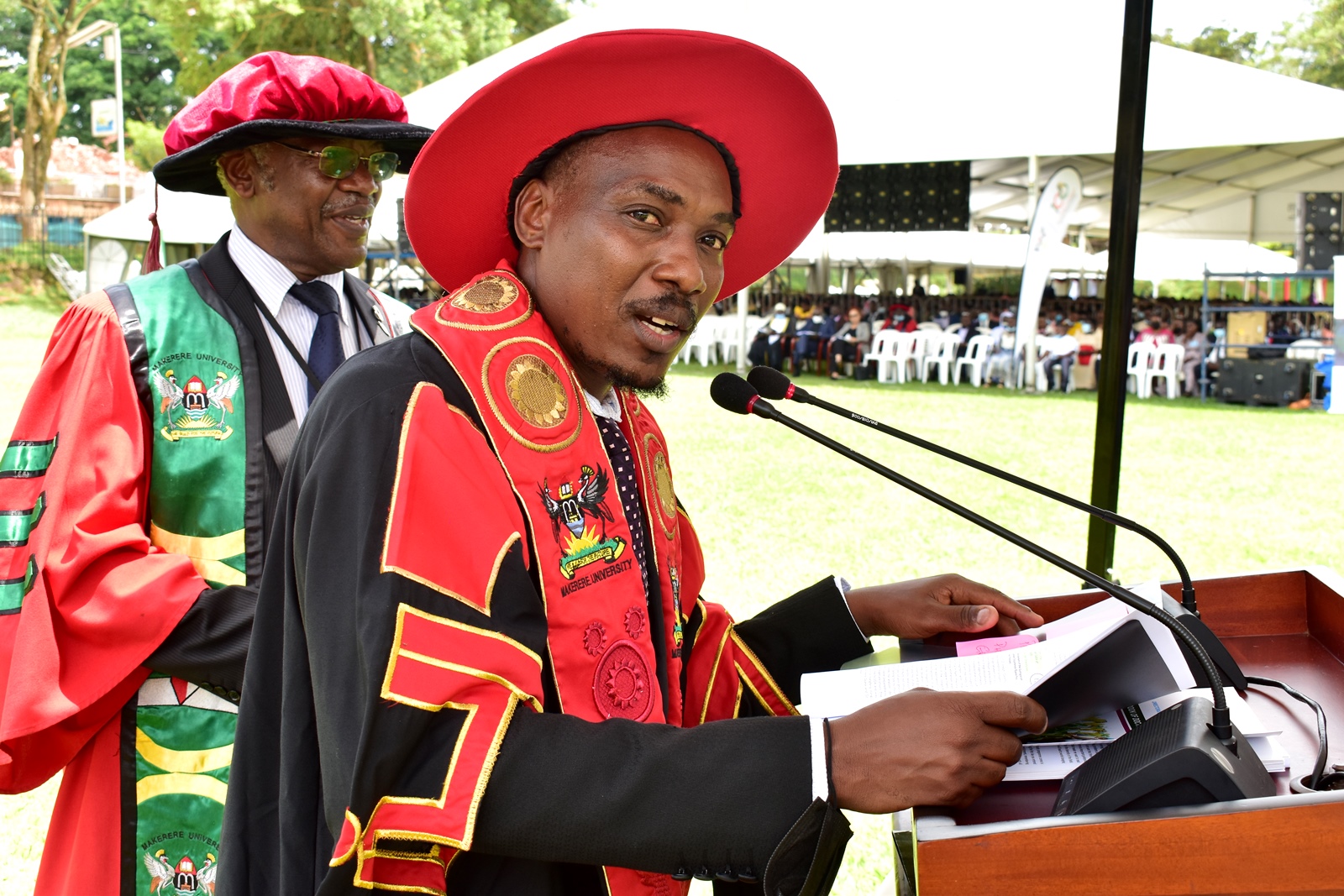
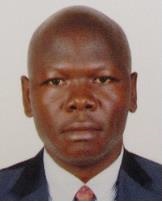
ADAKU Christopher
Chemical Structure and Properties of Anthocyanins from Selected Plant Species from Uganda.
Mr. ADAKU Christopher investigated a class of bioactive phytochemicals known as anthocyanins from selected indigenous plants, with the purpose of identifying ingredients for the development of nutraceuticals and for application as natural food colourants. This follows the increasing availability of natural health products with unsubstantiated health claims and the health concern associated with the use of synthetic food colourants. During the study, eleven new and seven known compounds were isolated and their properties deciphered. The compounds exhibited colour and stability required for food colourant application and showed remarkable antioxidant activity which is indicative of their potential beneficial health effects. These findings will lead to the development of nutraceuticals and other natural health products with guaranteed safety and efficacy. The isolated compounds can also be used as natural functional food colurants, especially for colouring refrigerated foods such as yoghurt, ice cream and beverages. This study was funded by SIDA through DRGT and MUTHI and supervised by Prof. Byamukama Robert and Prof. Kiremire Bernard (RIP).

ANYWAR Godwin
Ethnopharmacology, cytotoxicity, antiviral and immunomodulatory profiles of medicinal plant species used by herbalists in treating people living with HIV/AIDS in Uganda
Mr. ANYWAR Godwin investigated the cytotoxicity, antiviral activity and immunomodulatory potential of medicinal plant species used by herbalists to treat people living with HIV/AIDS (PLHIV) in Uganda. The study was motivated by the fact that PLHIV widely use untested herbal medicines even when already on antiretroviral treatment. The results from this study showed several plant species are mainly used to treat opportunistic infections among PLHIV. Two of the most widely used plant species, Albizia coriaria and Warburgia ugandensis were highly toxic to the human glioblastoma cell line used (U87.CD4.CXCR4). Regression analysis also showed that the plant extracts had varying selective anti-HIV-1 activities in vitro. The plant extracts also elicited different immune responses by stimulating different cytokines from Peripheral Mononuclear Blood Cells (PMBCs). Godwin recommend testing of crude plant extract mixtures used by the herbalists, and isolating and testing pure compounds from the most promising plant species. The study was funded by the Consortium for Advanced Research Training in Africa (CARTA), and DAAD and supervised by Prof. Esezah Kakudidi, Dr. Andreas Shubert, Prof. Robert Byamukama and Prof. Christian Jassoy.
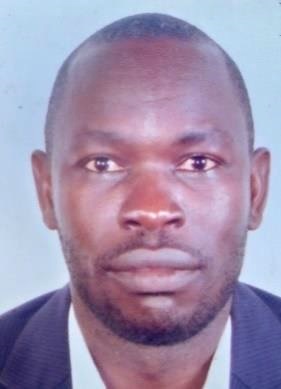
ENEKU John Paul
Optimization of the electrical resistivity of magnetron sputtered aluminium and boron co-doped zinc oxide thin films for solar cells.
Mr. ENEKU John Paul investigated co-doping of zinc oxide thin films with both aluminium and boron elements to develop a transparent thin film material of very low electrical resistivity for application as a transparent front electrode in thin film solar cells. This offers a low cost and eco-friendly alternative to the costly and toxic Indium Tin Oxide (ITO) electrode which currently dominates the solar cell market. The thin film based solar cells have the potential to significantly lower the price of photovoltaics based electricity. The investigation established that the co-doped zinc oxide thin film material can be used effectively as a transparent electrode in thin-film solar cells and can replace the costly standard Indium Tin Oxide (ITO). This study was funded by Makerere Universsity and International Science Program (ISP, Sweden) and supervised by Prof. Tom Otiti and Prof. Julius Mwabora.

BUTTIBWA Mary
Utilizing heated pollen and androgenesis pathways for the production of haploids in cassava
Ms. BUTTIBWA Mary investigated how heat-treatment of pollen facilitates production of haploids in cassava. Pollen, a fine powdery substance that comes from the male part of flowers and an equivalent of sperms animals, can be heat-inactivated and used hasten cassava embryo development. Because cassava’s reproduction cycle is too long it is difficult to quickly develop new varieties. The haploid technology can shorten this by 50%. Using heated pollen in pollination fostered the development of cassava embryos that further grew into haploid plants in a short time. The heated pollen germinated on the stigma but no fertilization was achieved; however, embryo development was stimulated. Early embryo rescue techniques rescued immature embryos on an artificial growth medium and re-generated into plants. This work contributes to the genetic improvement of cassava. The study was funded by the Bill and Melinda Gates Foundation through The International Centre for Tropical Agriculture and was supervised by Prof. Arthur Tugume and Dr. Robert Kawuki.

INUWA Badamasi
Effect of xenoestrogenic substances on fish health and reproductive potential of Nile tilapia, Nile perch and lungfish from two-distinctly polluted sites of Lake Victoria: the “more polluted”
Mr. INUWA Badamasi studied the effect of xenoestrogenic substances on fish health and reproductive potential of Nile tilapia, Nile perch and lungfish from two-distinctly polluted sites of Lake Victoria: the “more polluted” (Kasenyi, Ggaba, Port bell, Jinja) and the “less polluted” (Kasensero, Bale, and Bukakata). The motivation for this research was the decline in the wild fish stocks population of Lake Victoria, attributable to several factors, including pollution. Specifically, the study examined the liver conditions and gonadal development of fishes under different levels of pollution. Severe liver alterations were higher in fishes from more polluted compared to those from less polluted areas. Indeed, the chemical contamination of Lake Victoria could have caused the liver lesions and other changes in the fishes. Overtime, such chemical contamination could lead to negative impacts on the consumption of fish and fish products if actions are not taken to mitigate the risks. This study was funded by the Nigerian Federal Ministry of Education and supervised by Assoc Prof Charles Masembe and Dr. Robinson Odong.
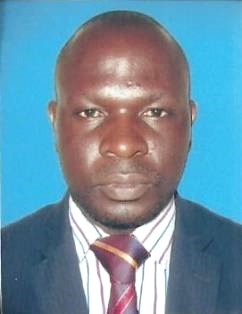
KITO Luliro Silas
The Numerical Range of Linear Relations and Stability Theorems.
Mr. KITO Luliro Silas studied the numerical range and stability theorems of linear maps on some mathematical spaces with the purpose of establishing the existence and uniqueness of solutions (solvability) to linear relation inclusions. In this study, he explored the effects of small alterations on certain maps between special spaces that are of mathematical interest in solving certain differential equations. The study found that within a certain degree of change, a small alteration on the map will not affect a particular set of characteristics of the map. These results are useful but not limited to; solving problems formulated when modelling airflow around an obstruction for example calculation of forces and moments on aircrafts, modelling fission weapon detonation, determination of mass flow rate of petroleum through pipelines, predicting weather patterns and ocean currents, solving fluid dynamics problems that require computation of fluid properties such as flow velocity, pressure, density and fluid temperature as functions of space and time. This study was funded by SIDA and was supervised by Assoc. Prof. Gerald Wanjala, Dr. Saul H. Nsubuga, Dr. Vincent. A. Ssembatya and Dr. Alex B. Tumwesigye.

KYOMUHANGI Annet
Reduced Modules Relative to Functors
Ms. KYOMUHANGI Annet’s study focused on the description of reduced modules and their dual using functors. She introduced and studied properties of a functor that measures how far a module defined over a commutative ring is from being reduced. She also found a machinery that allows one to associate a nil ideal to every ring. Since reduced modules are dualisable, Annet studied properties of their dual known as coreduced modules. She further introduced functors that describe coreduced modules and studied their properties. Moreover, she found that reduced modules simplify computations of local cohomology while coreduced modules simplify computations of local homology. The study was funded by Makerere-Sida bilateral programme (2015-2020); Project 316: Capacity building in Mathematics and its applications. Ms. Kyomuhangi was supervised by Dr. David Ssevviiri and Dr. Alex Samuel Bamunoba, both from Makerere University.

MAYANJA Edison
Mathematical Models for HIV-HCV Co-infection Dynamics under Various Control Strategies
Mr. MAYANJA Edison formulated mathematical models to study the dynamics of Human Immunodeficiency Virus (HIV) and Hepatitis C virus (HCV) co-infection. The HIV-HCV co- infection mathematical models which had been developed before, either ignored infection stages or considered HCV in only two stages of infection: the acute and chronic infection. However, the chronic stage of HCV is very long and consists of infected individuals that are asymptomatic yet infectious. Thus, this required deep analysis that had not been fully elucidated. In his study, he analysed the HCV chronic stage split it into: before onset of cirrhosis and its complications (Latent stage) and after onset of cirrhosis (Advanced stage). He used these mathematical models to investigate how HIV infection impacts the dynamics of HCV infection and vice versa. The study revealed that, increasing the rate of enrolment on HIV treatment reduces HCV prevalence and vice versa. Transmission probability per sexual contact and average number of sexual partners acquired per year were equally likely to result into increased HIV and HCV infections and these parameters were the most sensitive in increasing each of HIV and HCV infections. The study was funded by SIDA and was supervised by Prof. Livingstone S. Luboobi, Prof. Juma Kasozi, and Dr. Rebecca N. Nsubuga.
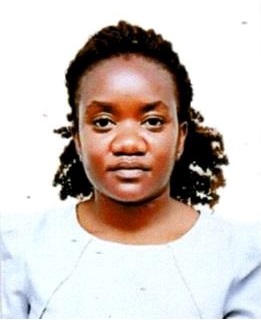
NABAWANDA Olivia
Flattened partitions: Pattern Avoidance and Behavior of Permutation Statistics.
Ms. NABAWANDA Olivia studied a sorting procedure (run-sort function) on permutations, where runs are rearranged in lexicographic order. The aim of the study was to investigate the behavior of the run-sort function with different permutation statistics namely runs, descents, peak-values and left-right minima. Olivia used Mathematica, a computation/mathematical software to generate the necessary data, which in turn she used in combination with bijective proofs and generating functions as the main tools. New combinatorial interpretations to several counting sequences namely A124324, Catalan, Fibonacci, Motzkin and Powers of two among others were provided as already indexed on the On-line Encyclopedia of Integer Sequences (OEIS) database, hence contributing to the existing body of knowledge. She also proved that the descent generating polynomials for these permutations are real rooted, and satisfy an interlacing property similar to that satisfied by the Eulerian polynomials, which are known to be real-rooted. Moreover, the run-sort function was found to possess interesting probability distribution properties. The research findings exhibited an interplay between discrete mathematics, probability theory and complex analysis. The study was funded by SIDA and supervised by Dr. Alex Samuel Bamunoba, Prof. Paul Vaderlind and Prof. Fanja Rakotondrajao of Antananarivo.
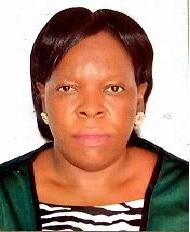
NALULE Rebecca Muhumuza
Hierarchical Models and Spatio-Temporal Processes In Data Analysis
Ms. NALULE Rebecca Muhumuza studied Hierarchical Models and Spatio-Temporal Processes in Data- Analysis with the aim of analyzing data which possesses both temporal and spatial dependence. She developed a non-linear general spatio-temporal model by extending Serfling’s model. Rebecca applied the theoretical findings to data of an outbreak of influenza in Southern Germany between 2001 and 2007. She also extended the random effect model by introducing the correlation coefficient between random effects in its definition. She again considered the problem of Bayesian estimation of heterogeneity parameter in the generalized random effects model where a comparison between the obtained results with the existing approaches was made. Rebecca used the findings for consensus building in meta-analyses of measurement results for the Newtonian constant of gravitation data and for the effectiveness of antiretroviral pre-exposure prophylaxis in preventing HIV infection. The study was funded by SIDA and was supervised by Prof Olha Bodnar, Dr. John Bosco Asiimwe and Dr. Rebecca N. Nsubuga.

NANFUKA Mary
The use of Splines for solving ill-posed problems, with application to the Cauchy problems for the Heat and Helmholtz equations
Ms. NANFUKA Mary developed a regularization procedure based on splines. The procedure was used to solve the Cauchy problems for the heat and Helmholtz equations, which are ill posed problems. The Cauchy problem for the heat equation had been previously solved by the Fourier transform method. The method, assumed that the time derivative, represented a periodic function which is not realistic. Thus, as an alternative, Mary approximated the time derivative by a cubic smoothing spline. The spline method effectively bounded the errors in the output solution according to the stability estimates. The Cauchy problem for the Helmholtz equation was regularized, by introducing a bounded approximation of the second derivative in the x-variable using cubic smoothing splines. A bound for the approximate
derivative was derived. The stability estimates, showed that the method worked pretty well and produced accurate results. The newly developed method was applied to an industrial setting for determining the surface temperature of steel and good results were achieved. The method is recommended for use for the solution to inverse problems that occur in the engineering and medical fields. The research was funded by Sida and supervised by Dr. Fredrik Berntsson, Dr.Godwin Kakuba and Assoc Prof. John Mango.

OCHEN William
Measurement and Modelling of Residual Stress in Porcelain Tiles Formulated from Different Quartz Particle Sizes in Uganda
Mr. OCHEN William studied residual stress in porcelain tiles formulated from different quartz particle sizes in Uganda. He measured residual stress using X-ray diffraction method, and modeling based on finite element method using abaqus software. His study was prompted by numerous complaints concerning the strength of the locally manufactured tiles. His study found out that residual stress decreases with an increase in quartz particle size over a range of 45-200μm. The decline in residual stress is attributed to the formation of cracks, which affects strength and hardness of the tiles. He further noted that upon sintering at 13000C, tiles with quartz particle size of 90μm exhibited properties that satisfied the ISO 13006 standard. His study therefore recommends the idea of fine quartz milling in a range of not more than 90μm. This study was funded by DAAD and supervised by Prof. Florence Mutonyi D’ujanga and Dr. Bosco Oruru.

OKELLO Omwonylee Joseph
Limiting Behaviours of the Longest Gaps Between Occurrence Epochs in Poisson Processes.
Mr. OKELLO Omwonylee Joseph investigated the asymptotic properties of longest gaps between occurrence epochs in Poisson processes using the theory of large deviations, based on the laws of large numbers. To do this, the global estimation of the distribution functions of longest gaps was derived with the help of discretization argument and the Slivnyak’s formula of Palm theory. The derived global estimation was then used to achieve Laplace transform asymptotics of the longest gaps. Through the application of Fenchel-Legendre transform, it was found out that the longest gaps satisfy two large deviation principles with exponential and power rate functions. Since this study was about the probabilistic analysis of rare events, the results not only fill the literature gaps but also provide a very useful planning tool to insurance companies, risk analyst, department of disaster preparedness, operation managers and others. The study was funded by SIDA and was supervised by Dr. Xiangfeng Yang; Dr. Richard Awichi Opaka and Dr. Fred Mayabala.
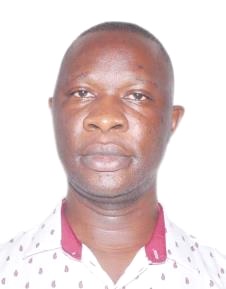
SSENYUNZI Richard Cliffe
Modelling Precipitable Water Vapour Using Global Navigation Satellite System Data over the East African Tropical Region.
Mr. SSENYUNZI Richard investigated the temporal and spatial variability of the zenith total delay and precipitable water vapour (PWV) data over the East African tropical region. The PWV data was collected from 13 geodetic permanent GNSS stations for the years 2013 to 2016. Lack of key variables such as the atmospheric water vapour, has been affecting the accuracy of weather predictions over the East African tropical region. The lack of this important parameter has been partly due to insufficient data and very scarce and unreliable tropospheric water vapour monitoring instruments in the region. In this study, the PWV, pressure and the weighted mean temperature linear models have been developed. The site-specific models developed can be utilized to supplement the GNSS and the weather stations data over the thirteen stations since they can provide estimates of nearly a similar degree of precision compared to the measured values. The study was funded by the African Development Bank and supervised by Prof. Florence Mutonyi D’ujanga and Dr. Bosco Oruru.

WAMONO Felix
Contributions to reduced rank regression modelling with applications to small area estimation.
Mr. WAMONO Felix studied the problem of decomposing residuals in the GMANOVA-MANOVA model with rank restrictions on parameters with applications in small area estimation. Firstly, Residuals in the GMANOVA-MANOVA model with rank restrictions on the mean parameters was considered. The main objective was to define residuals useful for evaluating the reduced rank restriction model. We decomposed linear spaces into four subspaces as it can be done for the Extended Growth Curve model with two “profiles”. The new residuals were defined by orthogonal projections on these subspaces. It was discussed how the new residuals could be used to test model assumptions. Secondly, Survey data from Uganda, including the 2014 Uganda Population and Housing Census data was analysed using small area estimation methodology. The GMANOVA-MANOVA model with rank restrictions on parameters was used to estimate the small area means. This study was funded by SIDA and was supervised by Prof. Dietrich von Rosen, Prof. Martin Singull, Assoc. Prof. Leonard Atuhaire and Dr. Innocent Ngaruye.
Browse Citations by College below:
< Director’s Message | CAES | CoBAMS | CoCIS | CEES | CEDAT | CHS | CHUSS | CoNAS | CoVAB | LAW | MUBS >
You may like
-


Mak hosts First African Symposium on Natural Capital Accounting and Climate-Sensitive Macroeconomic Modelling
-


Olivia Nakisita and the Quiet Urgency of Adolescent Refugee Health
-


Makerere Launches Scholarly Guide, Calls for Increased Research, Publication and Innovation in Africa
-
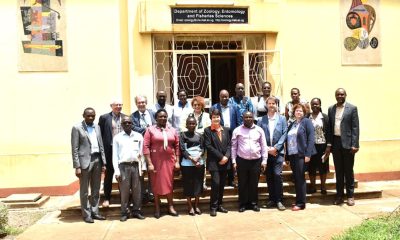

BOKU University Charts New Collaboration Strategies with Mak’s Department of Zoology, Entomology & Fisheries Sciences
-


When Birth Becomes the Most Dangerous Moment, Wanduru & the Work of Making Labour Safer
-


How Jimmy Osuret Turned Childhood Trauma into Evidence for Safer School Crossings
Natural Sciences
BOKU University Charts New Collaboration Strategies with Mak’s Department of Zoology, Entomology & Fisheries Sciences
Published
1 week agoon
February 12, 2026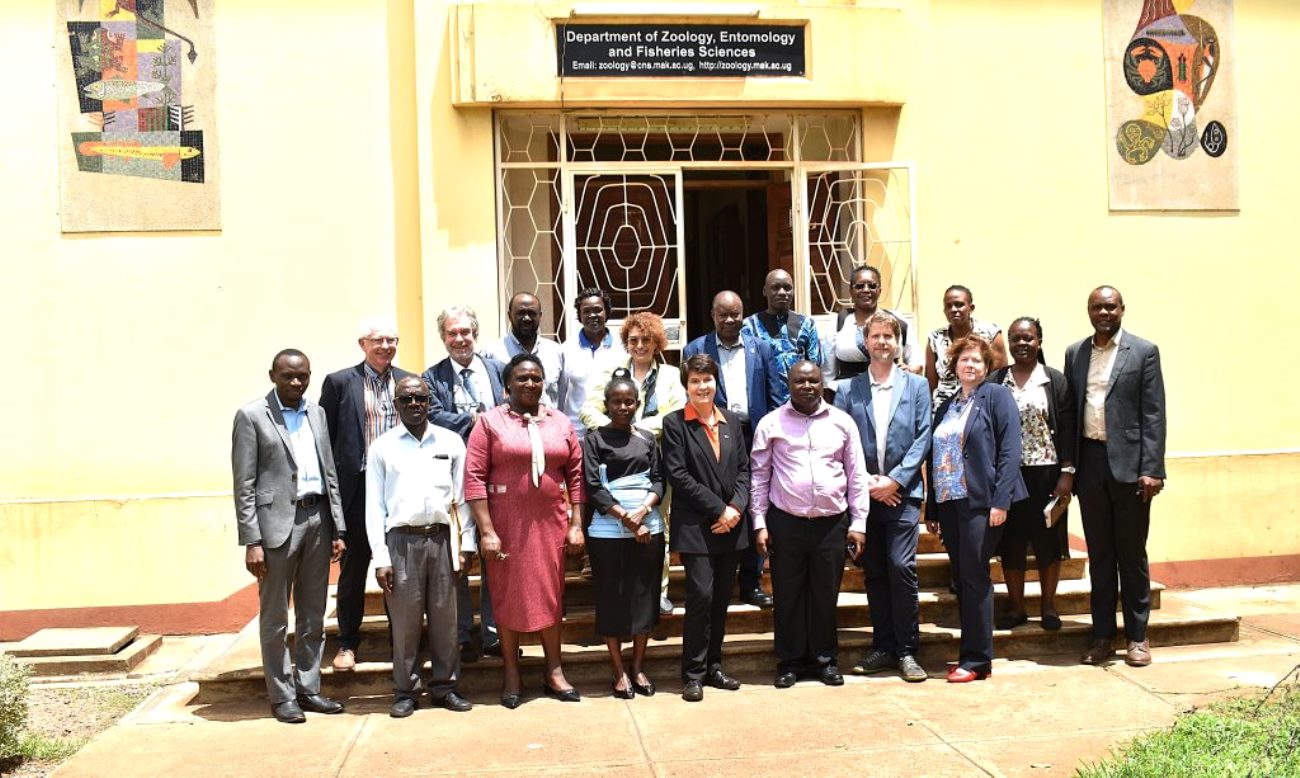
The Department of Zoology, Entomology and Fisheries Sciences at Makerere University on 11th February 2026 hosted a high-level delegation from the University of Natural Resources and Life Sciences, Vienna (BOKU), to discuss strategies for future collaboration in a partnership that has spanned five decades.
The meeting followed the BOKU team’s participation in the opening ceremony of the Promotion of Hybrid Renewable Energy Systems towards Electricity Access in Uganda project, an initiative designed to expand access to decentralized renewable energy solutions. The project, implemented under CEDAT, is funded by the Austrian Partnership Programme in Higher Education and Research for Development (APPEAR), a programme of the Austrian Development Cooperation administered by OeAD.

Discussions at the Department of Zoology, Entomology and Fisheries Sciences focused on deepening and broadening a historic collaboration that has shaped aquatic sciences, fisheries research, and environmental management in East Africa for half a century.
A Partnership Rooted in Limnology
The collaboration between Makerere University and BOKU traces its origins to 1975 with the establishment of the International Post-Graduate Course in Limnology (IPGL) by the late Heinz Löffler (1927-2006). The eight-month UNESCO-supported course, hosted in Lunz, Mondsee and Vienna, was designed to train scientists from developing countries in limnology – the study of inland waters.
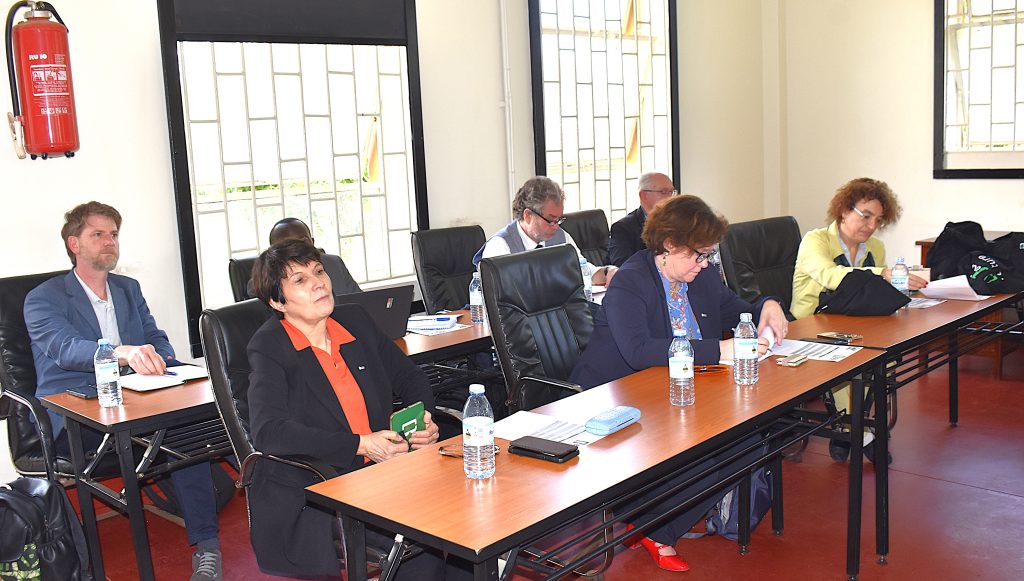
In 1976, Dr. Gwahaba James Joshua of Makerere’s Department of Zoology, Entomology and Fisheries Sciences became the first beneficiary from the university. Two years later, Boniface Makanga attended the UNESCO course and went on to initiate a Marine Practical Course to the Indian Ocean in 1993. That programme has since grown into over 30 years of annual field activity in Mombasa, benefiting undergraduate and master’s students and strengthening hands-on marine science training at Makerere.
Over time, IPGL evolved into a vibrant International Joint Degree Master’s Programme in Limnology and Wetland Management. The programme has built capacity for 123 aquatic professionals – 56 female and 67 male, including 20 from Makerere University. Notably, 11 dedicated limnologists are currently based within the Department of Zoology, Entomology and Fisheries Sciences, a testament to sustained capacity development.
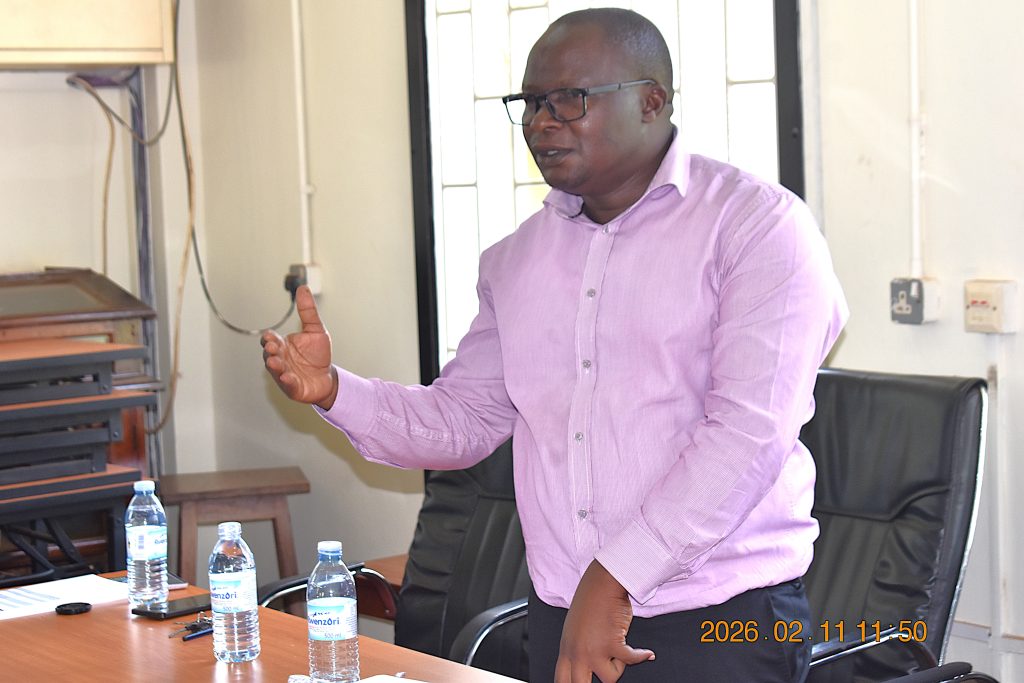
Expanding into Fisheries, Aquaculture and Regional Networks
The Mak-BOKU collaboration progressively expanded beyond limnology into fisheries, aquaculture, and broader freshwater ecosystem management.
Among the key initiatives was STRECAFISH (2015-2018), which focused on strengthening regional capacity in fisheries and aquaculture research and training to improve food security and livelihoods in Eastern Africa. The programme adopted a modular approach, trained 28 MSc students, supported five full PhDs and 11 MSc research projects, and facilitated 14 staff exchanges.
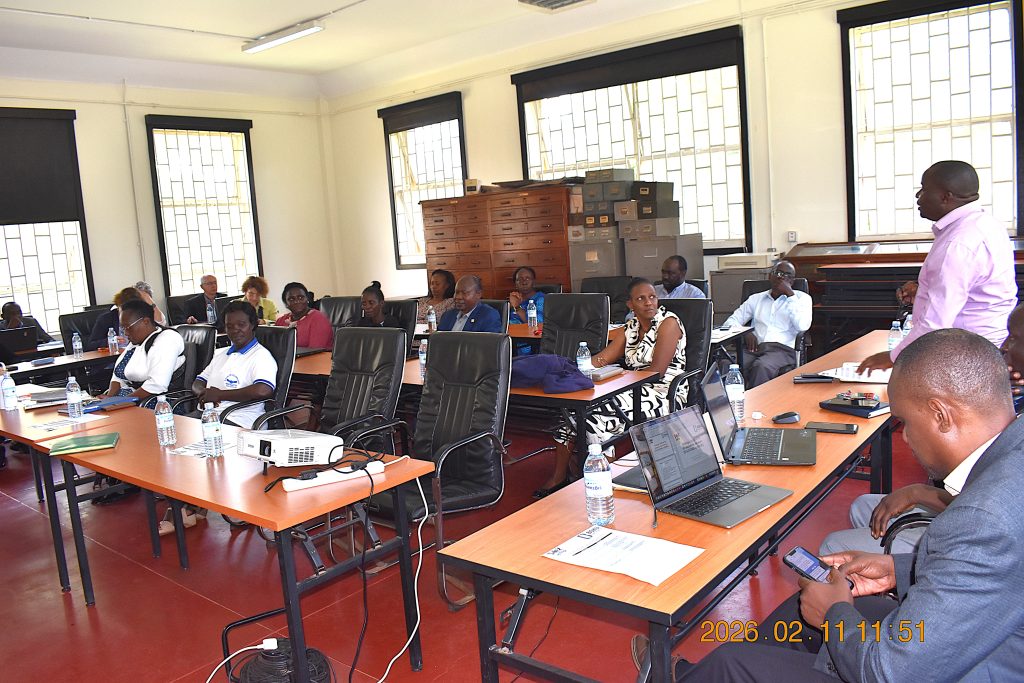
This momentum continued under COTRA (Collaborative Training in Fisheries and Aquaculture in East, Central and Southern Africa) from 2017 to 2023. COTRA enhanced staff and student mobility, supporting 24 master’s students (six credit-seeking and 18 degree-seeking), 12 doctoral candidates (four credit-seeking and eight degree-seeking), and 10 faculty and administrative staff. The initiative emphasized fit-for-purpose PhD training in aquaculture and fisheries to address food security challenges in Sub-Saharan Africa under the ACP-EU Cooperation Programme in Higher Education (EDULINK II), in partnership with institutions such as Lilongwe University of Agriculture and Natural Resources.
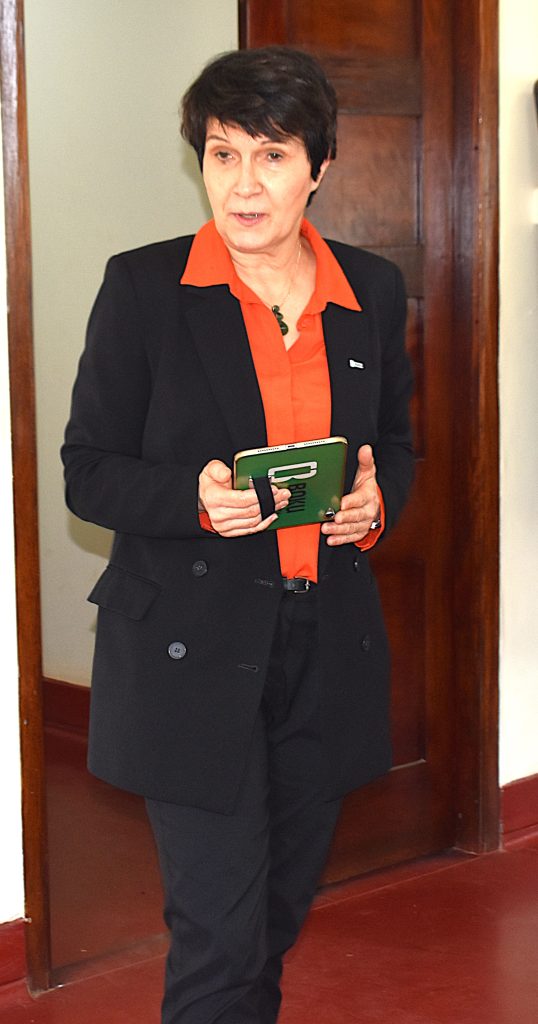
Ongoing collaborations include the Erasmus+ KA1 Learning Mobility of Individuals programme (2021-2027), which connects BOKU and Makerere with Egerton University, Kyambogo University, Addis Ababa University, Bahir Dar University and others. Additional joint initiatives include:
FreshNet: A higher education and research network for sustainable management of freshwater ecosystems in Eastern Africa, involving BOKU, Egerton University, Addis Ababa University, Bahir Dar University, EIAR and IHE Delft.
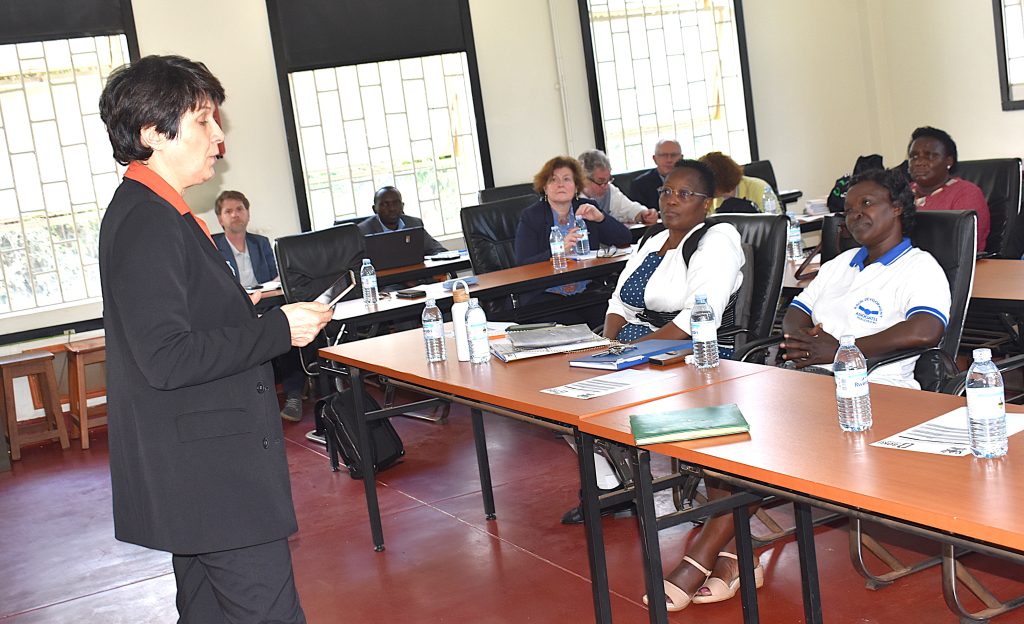
SWAQ-Uganda (2021-2026): Sustainable water quality management supporting Uganda’s development ambitions, implemented with IIASA, BOKU and Uganda’s Ministry of Water and Environment.
BIOGOLD (2024–2027): A project on biosorption for sustainable small-scale gold mining in Uganda, involving Kyambogo University, Makerere University, Gulu University, the University for Continuing Education and the University of Pretoria.
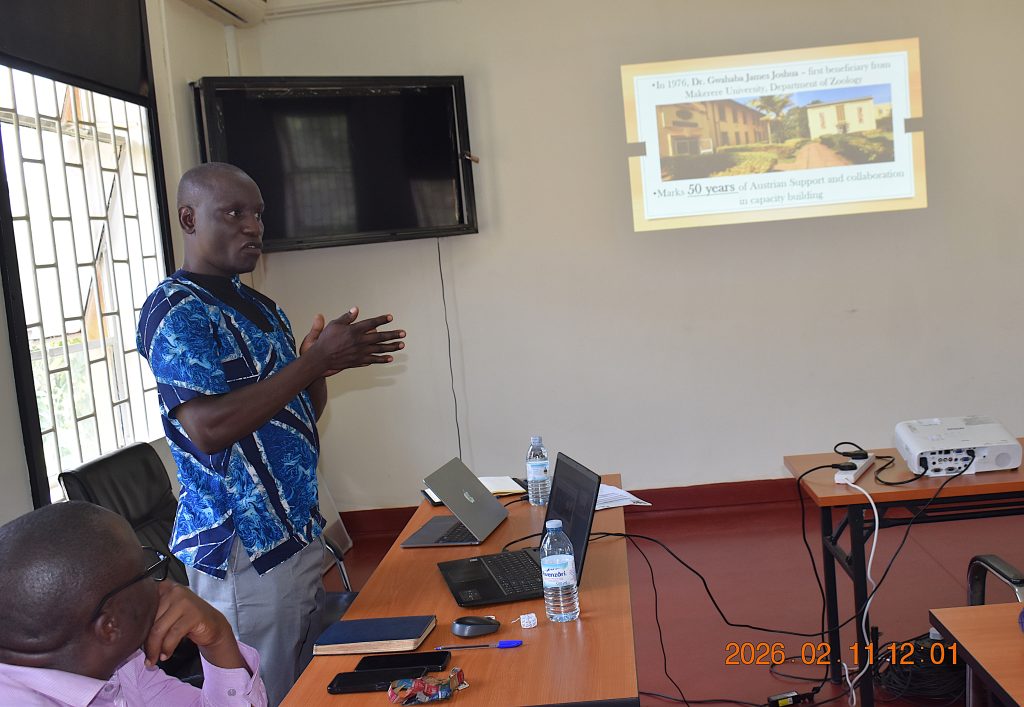
Collectively, these initiatives underscore a 50-year-old partnership that has built critical human resources at MSc and PhD levels in aquatic ecosystem management, conservation and utilization. The collaboration has also facilitated acquisition of essential research equipment, strengthened administrative capacity in project management, and nurtured a culture of knowledge sharing and innovation.
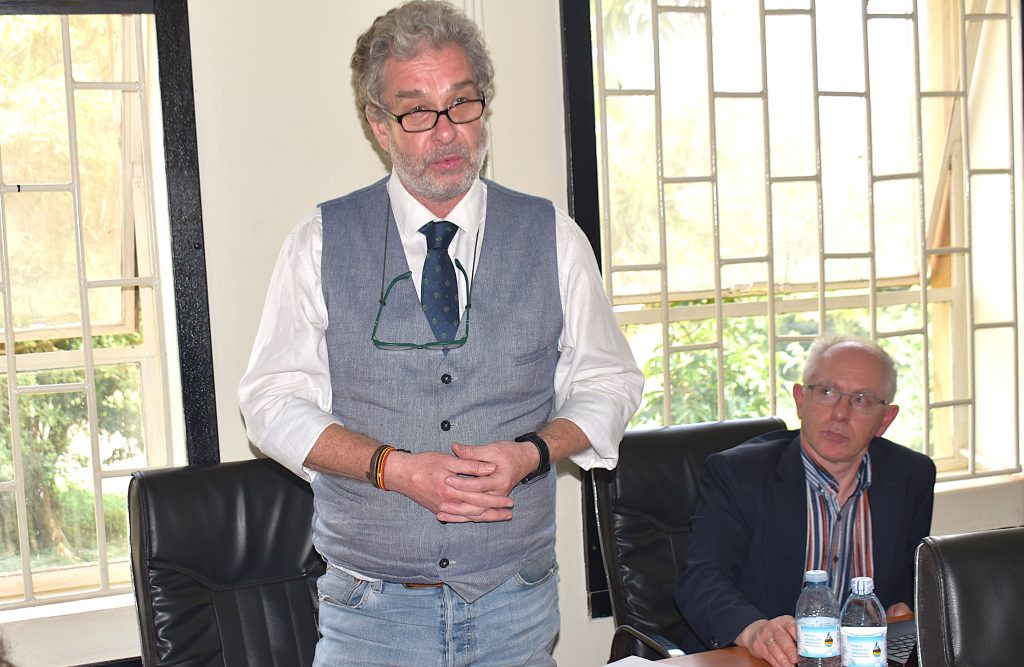
Meeting with the BOKU delegation
The BOKU delegation was led by the Rector, Prof. Eva Schulev-Steindl, a specialist in environmental law, and Vice Rector Assoc. Prof. Doris Damyanovic, an expert in landscape planning. They were accompanied by:
- Mag. Gerold Winkler, Coordinator of the Applied Limnology / Limnology and Wetland Master’s programme;
- Dr. Mathew Herrnegger, BOKU’s Africa Cooperation Country Coordinator and hydrology specialist; and
- Dr. Andreas Melcher, Africa-Uninet Coordinator from BOKU’s Institute for Development Research.
During the discussions with departmental staff, Dr. Akoll presented a detailed account of the partnership’s evolution and achievements, emphasizing its transformative impact on regional training and research capacity.
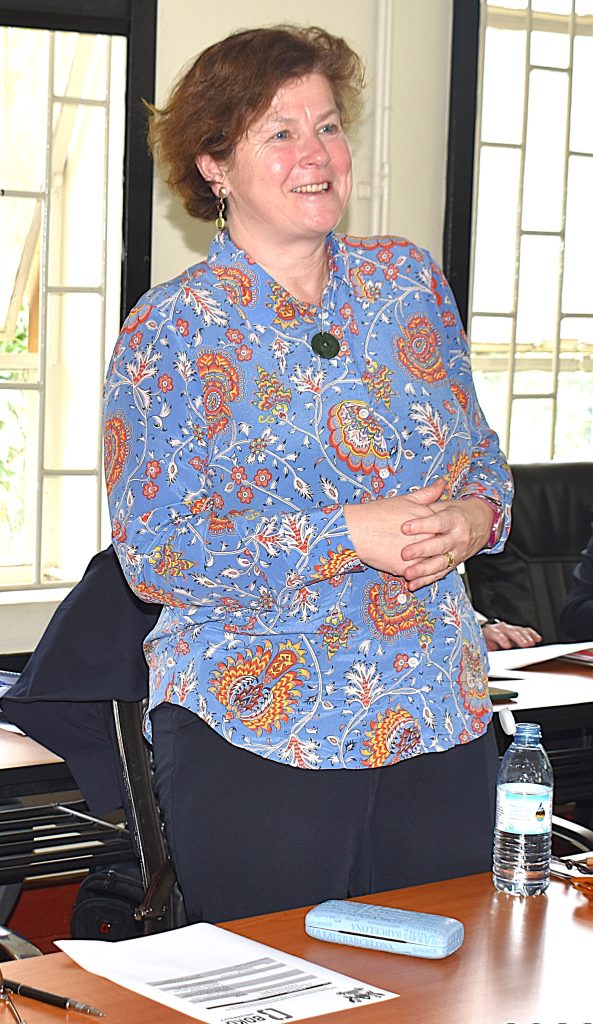
Charting the Next Chapter
As the partnership enters its sixth decade, both institutions are keen to expand into new frontiers. Key areas identified for future collaboration include:
- Enhanced staff and student exchanges;
- Joint research projects and co-publications;
- Introduction of short courses at the Makerere University Biological Field Station, Kibale beyond wildlife studies;
- Research on climate change and its effects on marine and freshwater resources;
- Advancement of basic biological research; and
- Strengthening fisheries research and innovation.
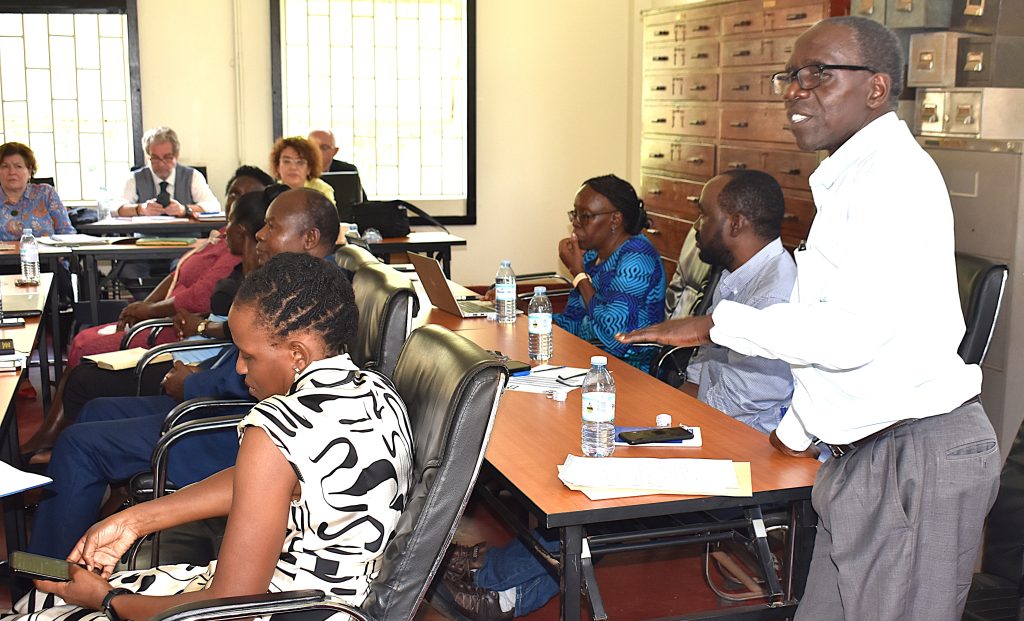
In his remarks, the Head of the Department of Zoology, Entomology and Fisheries Sciences, Dr. Godfrey Kawooya expressed gratitude for the enduring partnership, noting that it has significantly strengthened regional training capacity and supported the education of numerous Makerere staff and students. He added that the collaboration reinforces Makerere’s standing as one of the most collaborative universities globally and aligns closely with its research agenda.
Rector Schulev-Steindl reaffirmed BOKU’s commitment to advancing the longstanding relationship, describing it as a model of North-South academic cooperation built on mutual respect, shared knowledge and tangible impact.
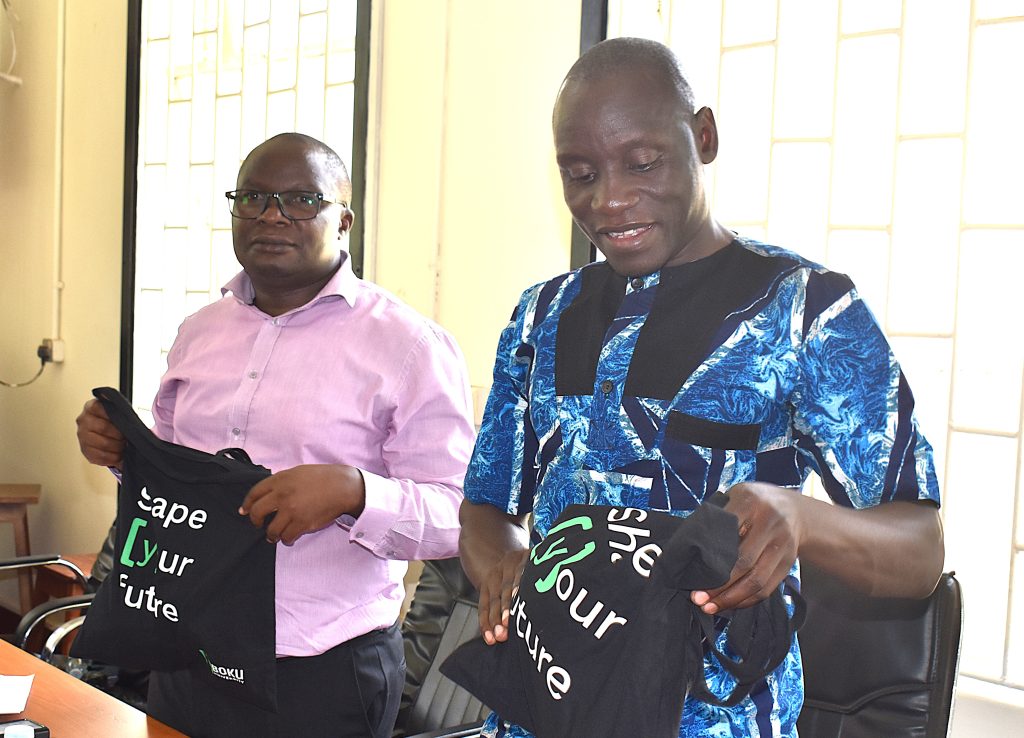
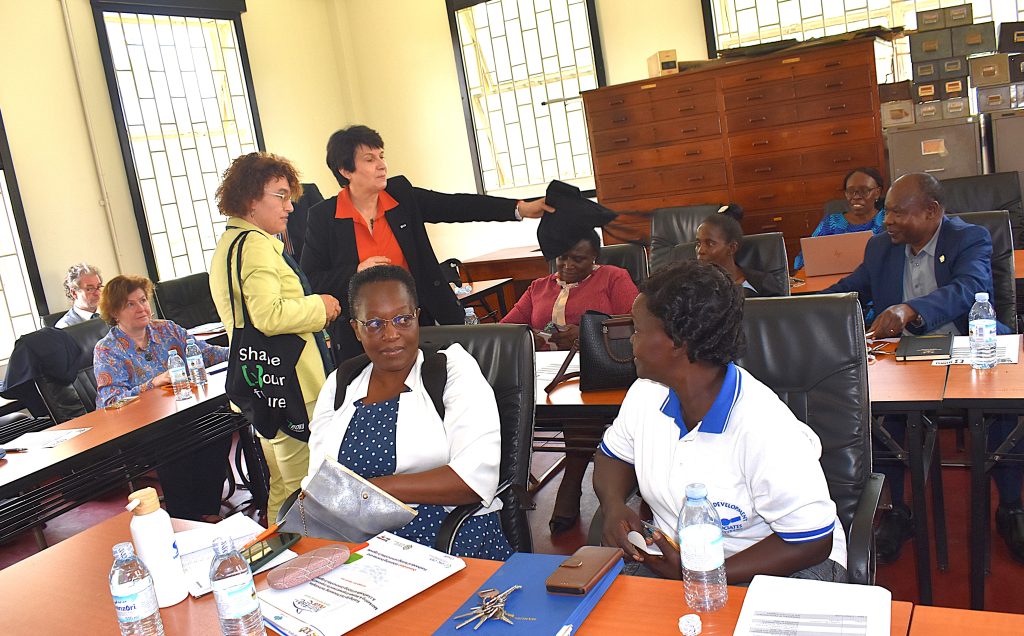
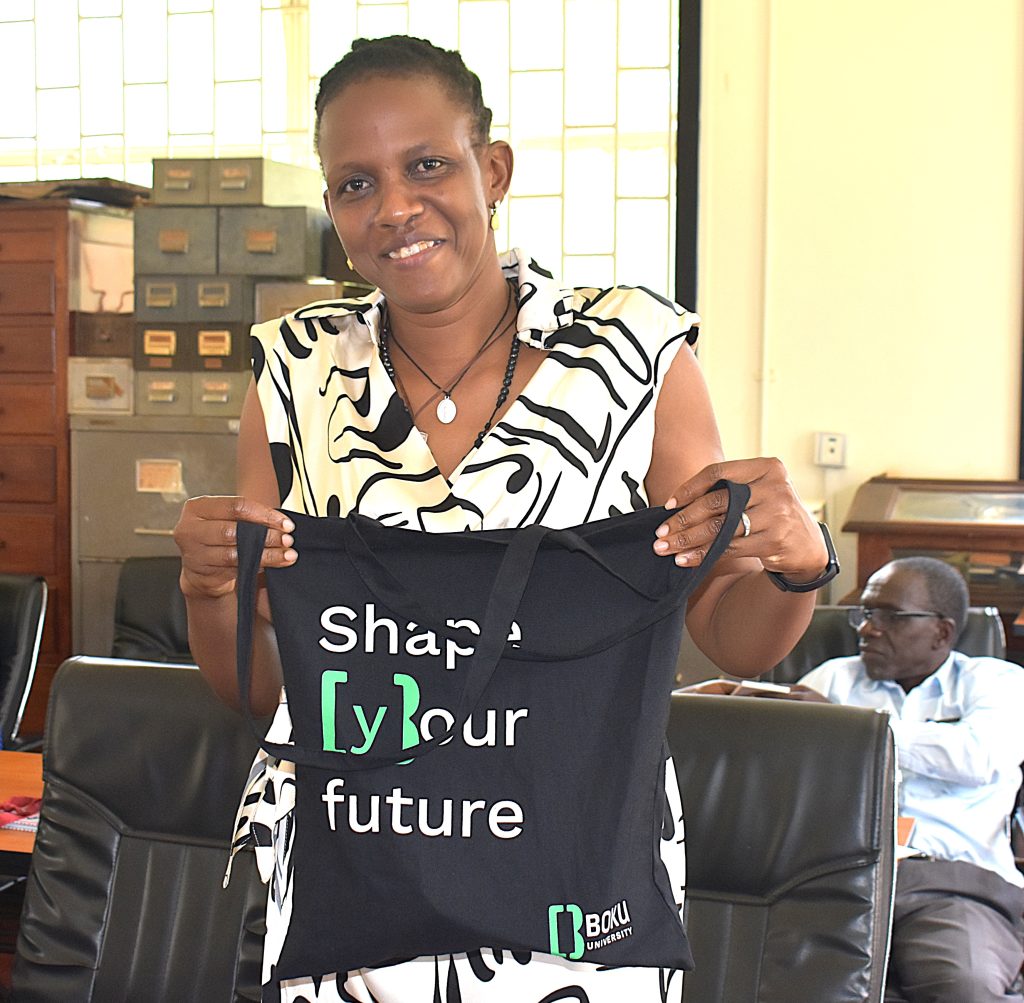
Event pictorial: https://drive.google.com/drive/folders/1HkCCZf_TCPV0V7_ZR2PSVEw1zrEGhZeJ?usp=sharing
Natural Sciences
Simon Mungudit: Mak’s Best Performing Male Science Student & Rising Star in Petroleum Geoscience
Published
3 weeks agoon
February 3, 2026
At just 24 years old, Simon Mungudit from the College of Natural Sciences (CoNAS) has etched his name in the academic history of Makerere University, having emerged as the overall best male student in the Sciences, an achievement earned through perseverance, discipline, and an unrelenting pursuit of excellence.
Mungudit is set to graduate during 76th graduation ceremony scheduled for 24th to 27th February 2026, having attained a CGPA of 4.76 in the Bachelor of Science in Petroleum Geoscience and Production. His academic interests-Reservoir Engineering, Petrophysics, and Drilling-reflect a deep understanding of the subsurface sciences that power modern energy systems.
Early Life and Journey to Academic Excellence
Born to Mr. Owor Thomas, a Game Ranger with the Uganda Wildlife Authority at Murchison Falls National Park, and Ms. Lilly Obewun Grace of Akuru Bridge Village, Nyaravur Sub-County in Nebbi District, Mungudit’s journey to academic excellence began far from the lecture halls of Makerere. At Karuma Primary School, Mungudit scored 12 aggregates in the Primary Leaving Examinations (PLE), setting the pace for his future success. He proceeded to St. Daniel Comboni College, Nebbi, where he attained 14 aggregates in 8 subjects at O’ Level. He then joined Namilyango College, one of the best secondary schools in Uganda, where he studied Physics, Chemistry, and Mathematics (PCM) and scored 19 points, results that secured him government sponsorship to pursue a Bachelor of Science in Petroleum Geoscience and Production at Makerere University.
Gratitude to his mentors and sponsors
Behind these milestones lies a story of humility, gratitude and opportunity. Mungudit credits his parents for supporting his primary and O’ Level education and expresses gratitude to TotalEnergies, which provided a full bursary for his A’ Level studies, covering tuition, upkeep, and medical care. He also acknowledges the Government of Uganda for sponsoring his university education, a factor he says motivated him to excel.
At Makerere, Mungudit thrived in an environment that blended rigorous academics with mentorship. He pays tribute to his lecturers, particularly Dr. Arthur Batte, Head, Department of Geology and Petroleum Studies, for their unwavering commitment to nurturing students and pushing them to excel.
“I always aimed to excel,” Mungudit says. “Together with a few colleagues, we formed a group and held discussions on a daily. This, coupled with a conducive study environment, prayer, and discipline, enabled us to attain excellent grades.”
Dr Arthur Batte describes Mungidit as a humble yet very intelligent student.
Achievements and Professional Experience
Beyond academics, Mungudit consistently demonstrated expertise in petroleum engineering. In 2024, he led a team that won the Reservoir Modelling Challenge, organized by the American Association of Petroleum Geologists (AAPG) Makerere University Chapter, earning prize money and a sponsored field trip to the Tilenga Project courtesy of COSL. He was First Runner-Up in the Petro Bowl competitions of 2023 and 2025, a highly competitive petroleum knowledge quiz organized by the Society of Petroleum Engineers (SPE) Uganda Section. He served as a Student Officer for the SPE Makerere University Chapter in 2023, and in 2024, he chaired the Organizing Committee of the SPE Annual Students’ Technical Conference and Exhibition, helping bridge the gap between academia and industry.
His learning extended beyond the classroom. During his internship, he worked with TotalEnergies, where he applied petrophysics skills to analyze gas-while-drilling data for formation evaluation, hands-on exposure that sharpened his professional competence. At Makerere University, he mastered PetroMod 2018, a critical software tool in oil and gas exploration. After completing his studies in June 2025, Mungudit trained with the Uganda National Oil Company (UNOC), participating in the 2D seismic acquisition in the Kasurubani Block in Buliisa and Hoima districts.
Mungudit currently works as the Special Projects Coordinator for the Society of Petroleum Engineers (SPE) Uganda Section Student Liaison Committee.
Future Plans
Mungudit hopes to work in the oil and gas industry in the upstream sector as a geoscientist. He also plans to pursue further studies in petroleum engineering.
From a village in Nebbi to the forefront of petroleum geoscience, Mungudit’s story is one of an opportunity seized and potential realized. It is a testament to what is possible when talent meets support, and when determination is guided by faith, mentorship, and service. As Uganda’s oil and gas sector continues to evolve, Mungudit stands as a symbol of the skilled, principled professionals poised to shape its future.
The CoNAS fraternity congratulates Mungudit on this noble achievement.
Natural Sciences
Enhancing Data Quality: NutriFishPlus Research Assistants Retooled Ahead of Baseline Survey
Published
1 month agoon
January 20, 2026
The NutriFishPlus Project team successfully conducted a one-day capacity-building training for its research assistants, centered on the Monitoring, Evaluation, and Learning (MEL) framework and the household survey tool. Held on 13th January 2026 at Ridar Hotel Seeta in Mukono District, the training aimed to improve data collection, analysis, and learning processes to support evidence-based project implementation and impact assessment.
It was officially opened by Dr. Jackson Efitre, the Principal Investigator, who introduced the research assistants to the overall goal of the NutriFishPlus Project and the guiding principles of the International Development Research Centre (IDRC) Scaling Approach. In his remarks, Dr Efitre emphasized the importance of high-quality data in tracking progress, informing adaptive management, and scaling impact.
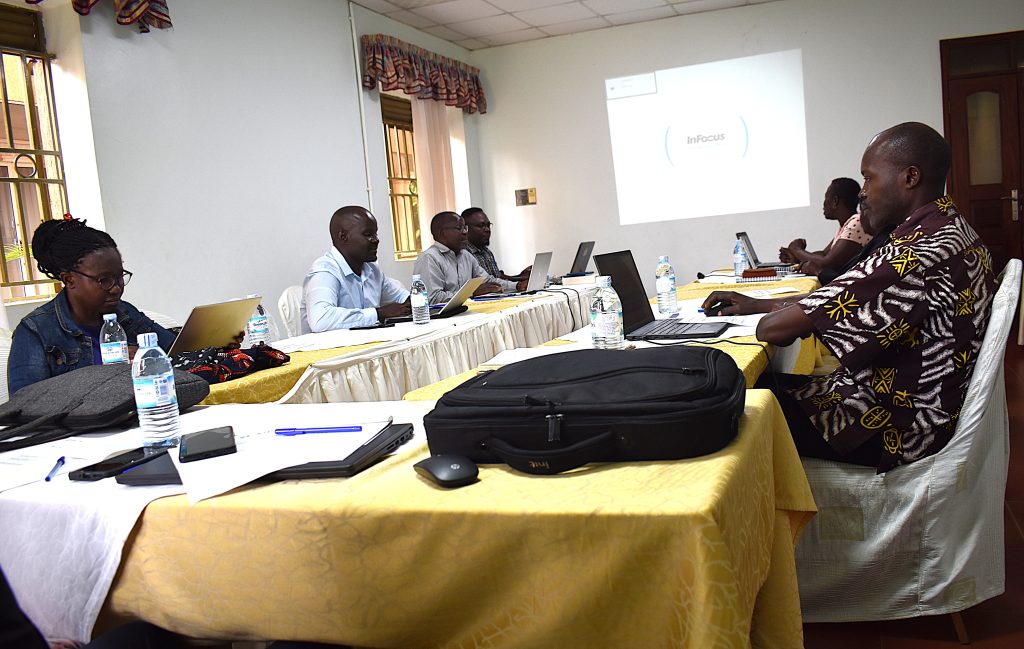
NutriFishPlus builds on the significant achievements of the ground-breaking NutriFish Project (2019–2023), which was funded by IDRC and the Australian Centre for International Agricultural Research (ACIAR) through the Cultivate Africa’s Future Fund Phase II (CultiAF2). Officially launched on 28th October 2025, the two-year and eight-month project seeks to scale proven innovations while deepening nutrition, livelihood, and gender outcomes within small pelagic fisheries.
The project aims to:
- Scale up the adoption of improved and sustainable fish processing technologies, including solar tent driers and raised racks, to reach new fishing communities across Uganda.
- Enhance market access and strengthen supply chain linkages for high-quality fish and fish-based products.
- Empower women and other vulnerable groups while strengthening community resilience through diversified income-generating activities.

Expected Outcomes:
NutriFishPlus is expected to deliver multiple socioeconomic and environmental benefits, including:
- Improved incomes and livelihoods for marginalized fishing communities, particularly women and youth.
- Enhanced health and nutrition outcomes through the development of diversified, market-embedded fish products.
- Establishment of sustainable and replicable fish processing and marketing models across Uganda and the wider East African region.
- Increased participation of women and youth in decision-making and benefit-sharing within the Small Pelagic Fishes (SPFs) value chain.
- Improved socioeconomic conditions and ecosystem health through participatory and scalable approaches.
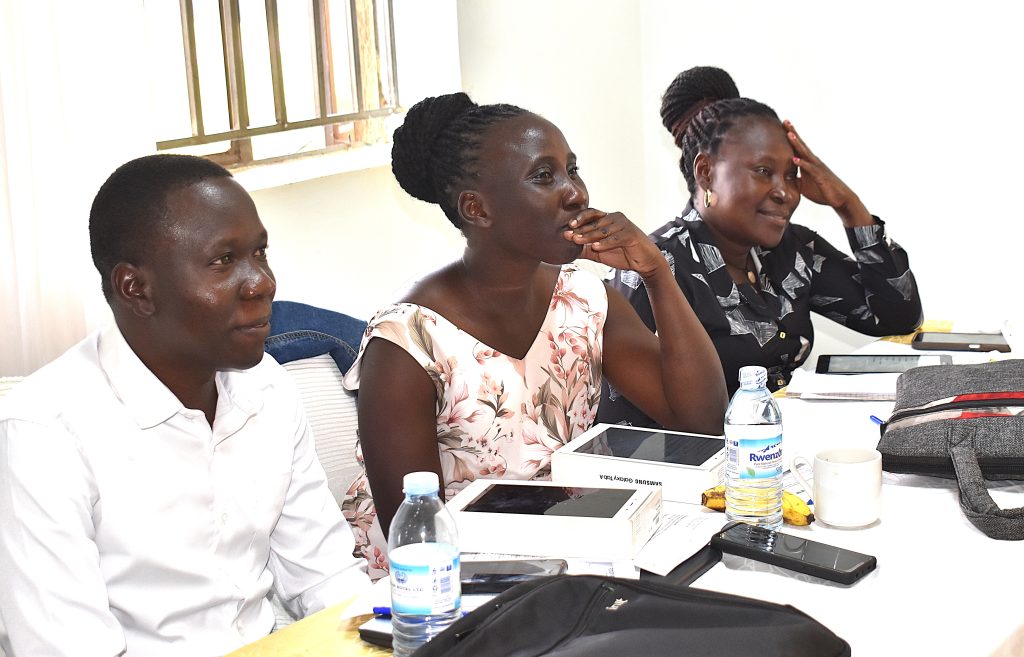
Project Implementation and Partnerships
The project is implemented by the Department of Zoology, Entomology, and Fisheries Sciences at Makerere University, in partnership with Nutreal Ltd and Kati Farms Ltd under a public-private partnership. Project activities will be carried out at five landing sites across Lakes Victoria, Kyoga, and Albert.

The project team comprises:
- Dr. Jackson Efitre (Principal Investigator)
- Dr. Dorothy Nakimbugwe (Co-PI from Nutreal Ltd)
- Ms. Lovin Kobusingye (Co-PI from Kati Farms Ltd)
- Dr. Robinson Odong (Project Officer, Department of Zoology, Entomology and Fisheries Sciences, Makerere University)
- Ms. Juliet Ogubi Nafula (M&E Expert)
- Ms. Nelly Badaru (Gender Specialist)
- Mr. Eugene Swinnerstone Miheso (IT Expert)
- Mr. Maurice Ssebisubi (Kati Farms Ltd)
- Ms. Hasifa Kabejja (Communication Officer)
- Ms. Eve Akongo Ampa (Project Administrator)
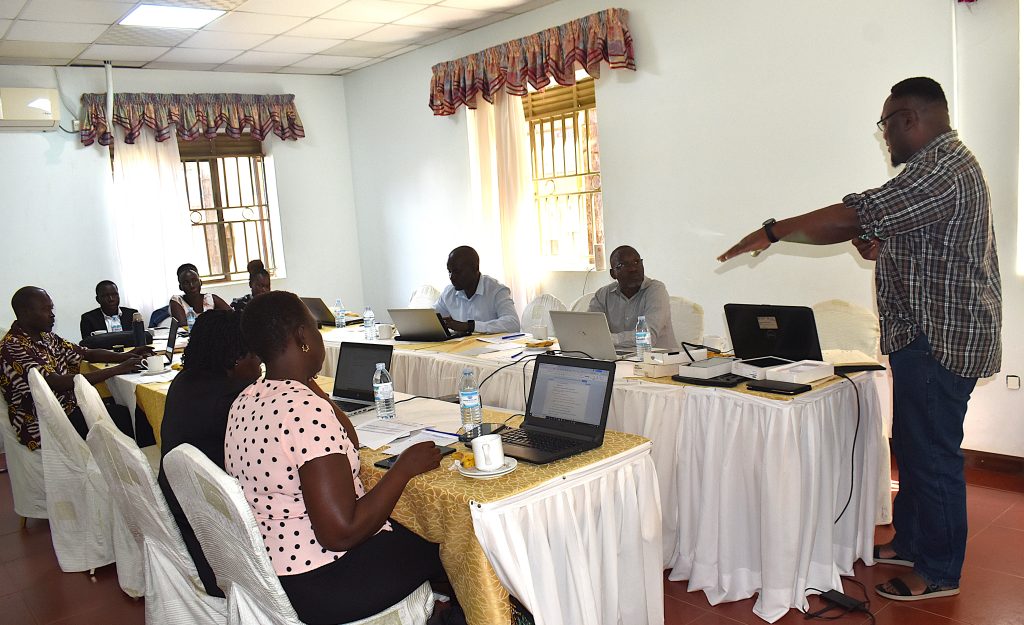
Strengthening MEL and Data Quality
During the training workshop, Ms. Juliet Ogubi Nafula guided the team through the NutriFishPlus MEL framework, highlighting its objectives, indicators, results chain, and reporting requirements. Particular emphasis was placed on the role of high-quality data in facilitating project learning, adaptive management, and accountability to donors and beneficiaries.
A key highlight of the training was a hands-on orientation to the household survey tool, led by Mr. Eugene Swinnerstone Miheso. Participants were taken through the structure of the questionnaire, which covers household demographics, nutrition and dietary diversity, fish consumption, livelihoods, value addition, gender dynamics, and food security. Practical sessions enabled the research assistants to practice administering the tool, apply effective probing techniques, and address common field-level challenges.
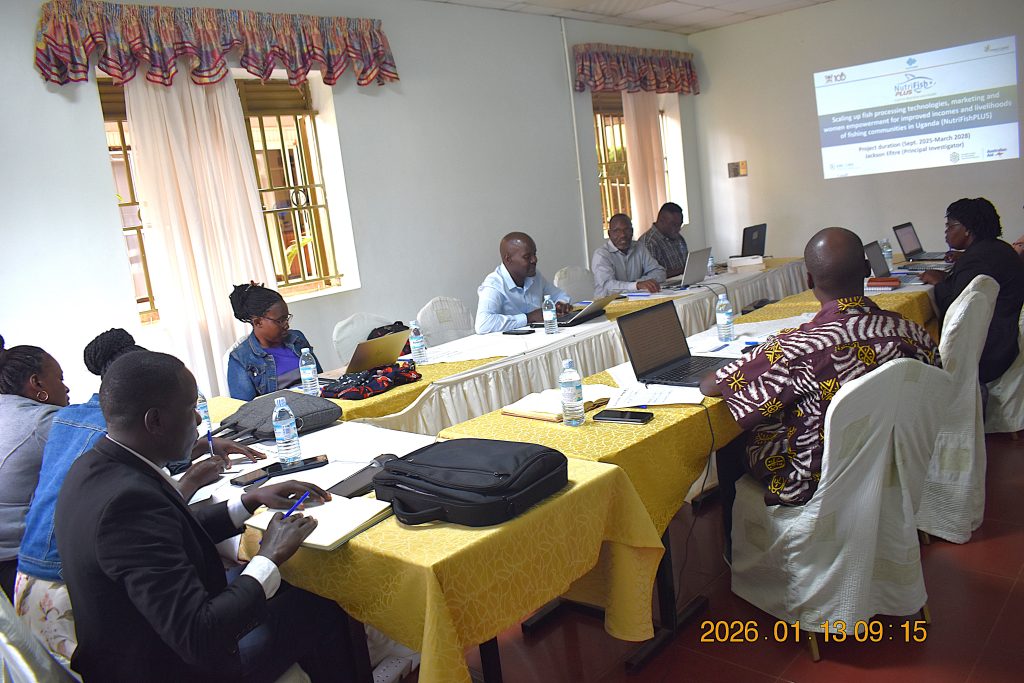
The training underscored critical ethical considerations in household data collection, including informed consent, confidentiality, and respectful engagement with respondents. Data quality assurance measures such as accurate data recording, use of digital data collection platforms, and daily review protocols were discussed to ensure consistency and reliability.
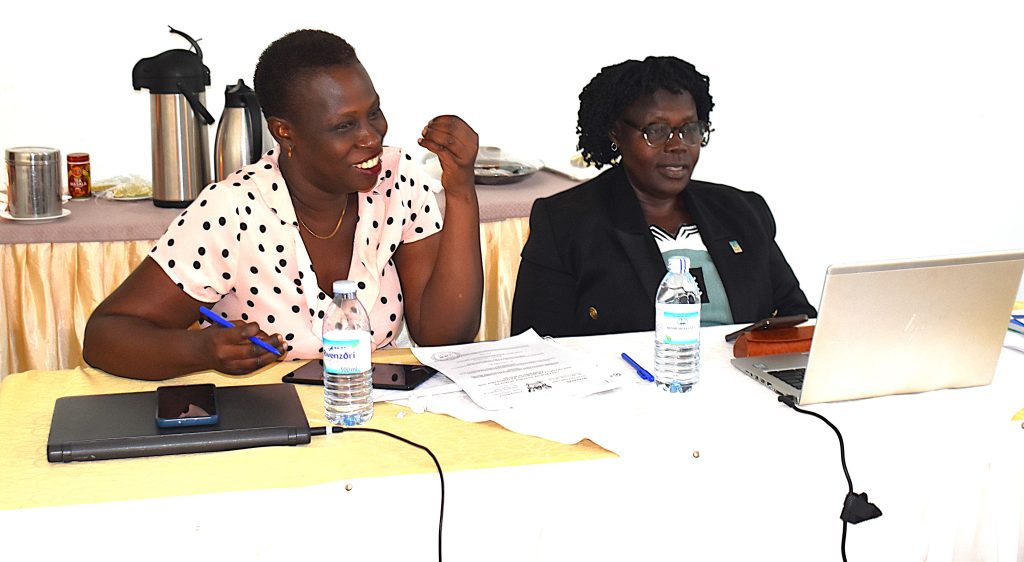
In his closing remarks, Dr. Efitre emphasized that well-trained research assistants are central to generating credible evidence that reflects the lived realities of beneficiary households. “This training is a vital investment in strengthening our MEL system and ensuring that the evidence we generate informs learning, accountability, and improved project outcomes,” he noted.

The participants expressed gratitude for the interactive and practical nature of the training, noting that the sessions significantly enhanced their confidence and readiness for fieldwork. The training concluded with a question-and-answer session and a brief assessment to confirm participants’ understanding of the MEL framework and household survey tool.

Pre-testing of the household survey tool
Following the training, the project team conducted a pre-test of the household survey tool at Kasenyi Landing Site in Entebbe on 19th January 2026, ahead of the baseline survey. The baseline data collection will be carried out across five landing sites: Katosi (Mukono District), Kikondo (Buikwe District), Bangaladesh and Kayago (Amolatar District), and Dei (Pakwach District), spanning Lakes Victoria, Kyoga, and Albert.
Details on the project at: https://news.mak.ac.ug/2025/10/mak-conas-launches-nutrifishplus-project/
Trending
-

 General2 weeks ago
General2 weeks agoAptitude Exam (Paper 1) Results for the Mature Age Entry Scheme 2026/2027
-

 Health3 days ago
Health3 days agoUganda has until 2030 to end Open Defecation as Ntaro’s PhD Examines Kabale’s Progress
-

 Health2 weeks ago
Health2 weeks agoHow Jimmy Osuret Turned Childhood Trauma into Evidence for Safer School Crossings
-

 General2 weeks ago
General2 weeks agoFor Youth by Youth – Call for Second Cohort Applications
-

 General3 days ago
General3 days agoMastercard Foundation Scholars embrace and honour their rich cultural diversity
